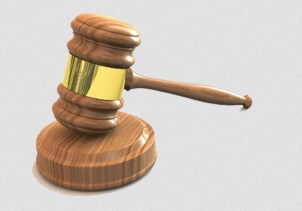TVL Legal Powers
... the lengthy list of laws that TV LicensingTM can use

Very limited powers
1. Communications Act 2003 (Section 366)
2. ... no, nothing else.
In fact, the surprising thing about TVL's legal authority is that there is so little of it. Letters? No, not there. Doorsteppers? No, not them either.
The fact is that most of what TVL does is outside of Legislation, and that means you are free to ignore it.
S.366 covers the Warrant process in considerable detail. That's why it's suspicious that the Letters and Visits are not mentioned at all. Even then, a leaked training manual suggests example reasons that are not really in keeping with the "reasonable suspicion" required by the law.
1.5 Examples of evidence that may be used
- Set seen but not in use. No admission, entry refused.
- Occupier admits set but no admission of use. Entry refused.
- Set denied, programme heard.
- Admission of broken set on premises. Inspection refused.
- Inspection is allowed after delay. No set is seen, but circumstantial evidence.
Once again, it's important to understand that Warrants are very, very rare.
We've already said that the letters are a hoax. What they contain are vague threats and a lot of misleading info that you can safely ignore. But it's worse than that. The letters are not present in the legislation. There's no legal requirement for BBC/TVL to even send them.
Similarly, the Doorsteping TVL staff ("Goons") are not found within the Legislation, either. They are something that the BBC has dreamt up and imposed on the British Public simply because they've decided it's appropriate. This is arguably a breach of the Right to Privacy.
It remains an open question as to whether these things need Legislation to support them. If they don't have Legislation, you can freely ignore them, which is useful. However, how is the average person supposed to know where they stand? And surely the Public deserve something better than a regime hastily put together over the coffee after a particularly fine meal at the Licence-payers' expense.
It's always been suspected that there were underlying legal problems with the BBC's approach to TV Licence enforcement. However, two recent developments now provide such strong confirmation that we are prepared to state it here, unequivocally - the BBC's approach is in breach of the Right to Privacy (UK-wide) and PACE (under English law). The applicable law gets very complex, though, and what's ultimately required is a Judicial Review.
1. Article 8 of the Human Rights Act is where the Right to Privacy from the State is defined. The BBC accepts that what it does is in scope of this legislation. It says that it is exempt because its doorstepping operation is consensual. However, when asked for more detail on what that means in practice it simply doesn't answer. That's a problem because legal precedent says that any "rules" affecting the Right to Privacy must be Specific, Explicit, Clear, and Understandable. By publishing no detailed guidance, BBC/TVL fails all 4 of those requirements and is therefore operating unlawfully.
2. PACE Code C, 3.22 says that an organisation like BBC/TVL undertaking Interviews under Caution in people's homes requires informed consent. This would mean that TVL should explain to people exactly what their rights are, but they do not do this. Also, it states that suspects being interviewed must be told that they can cease the Interview at any time, and that they can demand that TVL leave the premises - TVL does not tell them that, either.
There are a variety of other legal issues under the Human Rights Act and PACE which also give cause for concern, including using a pre-filled paper form as a Record of Interview, which cannot realistically address the legal requirement that it should be a verbatim record that is impartial and proof against tampering.



